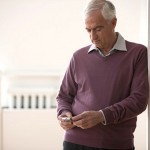 The rise in mobile healthcare applications and devices has been one of the more virulent in the past year or so. The Tricorder prize has set out to create a mobile healthcare device that can monitor and record several vital health metrics in one go, but there have been any number of smaller projects that monitor one or two things very successfully.
The rise in mobile healthcare applications and devices has been one of the more virulent in the past year or so. The Tricorder prize has set out to create a mobile healthcare device that can monitor and record several vital health metrics in one go, but there have been any number of smaller projects that monitor one or two things very successfully.
The aim is clearly to provide patients with an easier method of keeping tabs on their health, whilst of course providing physicians a better stream of data on the health of their patients. There is a perception that many of these innovations will benefit the younger population, but a new team produced by several Spanish universities are hoping to use mobile apps to improve elderly care.
The first stage of the project was to determine the algorithm they could use to take the readable health metrics, collected via cognitive tests or questionnaires, and turn them into accurate and reliable health measures.
The aim of the two year project is then to create an easy to use app that is capable of measuring all of the indicators required to gauge the health of people over 60 years of age. The team are currently working on functionality that can measure heart rate variability (HRV) and physical activity via a mobile by using some of the sensors already contained in the device. For instance, functions such as the accelerometer or the screen tilt and rotation detectors could be used to measure physical activity. This could then be combined with GPS sensors to hopefully provide an accurate portrayal of the users physical activity.
The camera and flash could then be used to detect HRV using a technique that measures the status of the autonomic nervous system and cardiorespiratory status. Existing apps on the market use a similar method, for instance asking users to place a fingers across the lens and using the flash to illuminate it to record changes in pulse.
A slightly more complicated alternative could be to try and measure HRV in real time to determine whether the users health is improving or worsening.
The project is one of the 26 finalists in the 2014 RecerCaixa competition, which aims to promote scientific research. They hope to create a social network of users once the app is developed, so that they can share results and experiences online with others. Users will also receive advice from experts and wellness coaching style recommendations.
I love this. The range of new innovations in healthcare is incredible. Great to see.
The range of new innovations in healthcare is incredible.